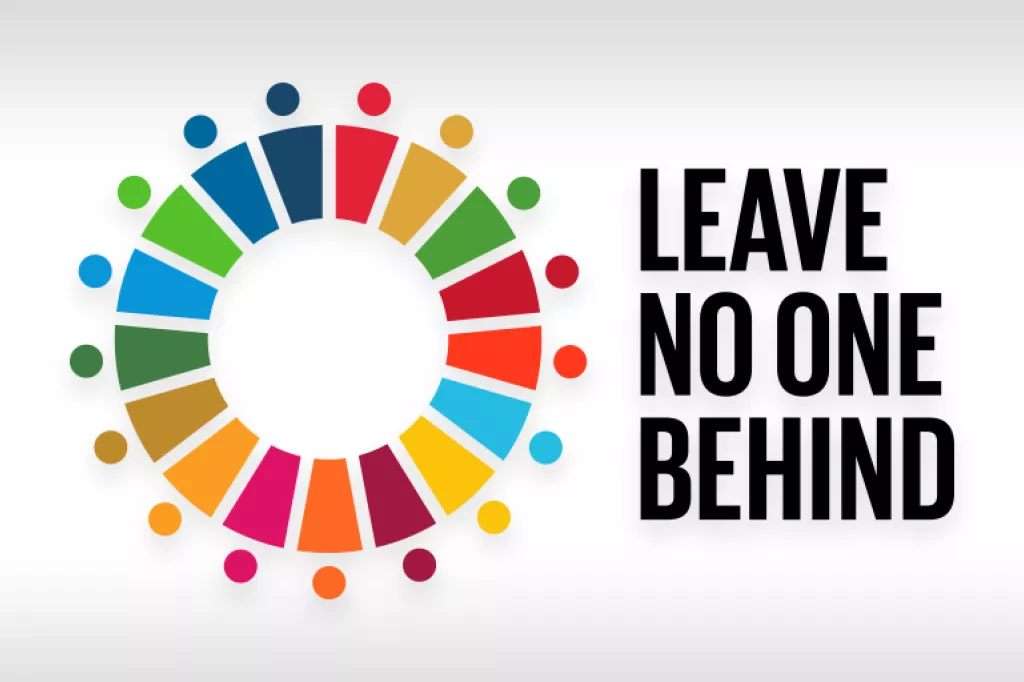Accelerated actions to Leave no one behind!

In the Global Goals, we promise to build a better future. A future with equal rights and equal opportunities not just for most, but for all. To build that future, all Goals must be achieved together. No Goal will be considered achieved, unless achieved for all. Only when no one is left behind will we have truly reached the Global Goals.
Our leaders have committed to Leave no one behind!
When the 2030 Agenda with its 17 Global Goals were adopted in 2015, world leaders did not only commit to end extreme poverty, tackle climate change and promote peace and justice, but also to reduce inequalities.
Our leaders committed to ‘leave no one behind’ and made a pledge to endeavour to reach those furthest behind first. The keeping of this promise, and the changes that it will bring, will be for the benefit everyone. It means that none of the Global Goals can be considered met unless they are achieved for all.
“As we embark on this great collective journey, we pledge that no one will be left behind. Recognizing that the dignity of the human person is fundamental, we wish to see the Goals and targets met for all nations and peoples and for all segments of society. And we will endeavour to reach the furthest behind first.”
Paragraph 4 in the 2030 Agenda
Why is ‘Leave no one behind’ important?
We have seen great progress for many people and countries in recent decades. Extreme poverty has been cut in half, the health of millions of people has improved and more children than ever go to school.
But progress has not reached all. More than 700 million people still live in extreme poverty and the number of people living in extreme poverty in sub-Saharan Africa has increased. The number of people going hungry has increased.
Girls and women, children and youth, the elderly, people with disabilities and mental health impairments, ethnic and religious minority groups, refugees and migrants and people who identify as lesbian, gay, bisexual, transgender and intersexual (LGBTI) all over the world are still denied their rights.
Poverty is a crucial problem, but it is not the only explanation for people being left behind. Discrimination and exclusion because of sex, age, income, ethnicity, religion, disability, sexual orientation, nationality or asylum status can all prevent and discourage individuals from taking part in the development progress.
To leave no one behind is the most important commitment in the 2030 Agenda because it puts equality and inclusion at the centre of the development agenda. ‘Leave no one behind’ is about eliminating extreme poverty in all its forms, decreasing inequalities and fighting discrimination. The commitment has a particular focus on the poorest and most vulnerable people – those who often are the most difficult to reach.
What does it take?
It is urgent to take action if this promise is to be fulfilled. It will require political will, participation, inclusive policies, resources and data.
We welcome the Decade of Action and Delivery for Sustainable Development and call for actions that put the furthest behind first!
Andra nyheter

The power of people powered Public-Private Partnerships
Public–Private Partnerships (PPPs) are often discussed in terms of roads, power plants, housing, and other large infrastructure projects. But as discussed on the People’s Partnership Podcast, PPPs are...

ForumCiv’s social media accounts labelled as “extremist materials” in Belarus
Important message to our Belarusian followers. Any interaction with our content can now lead to legal consequences in Belarus. Please read the information below and take the necessary precautions for...

ForumCiv enters new strategic partnership
ForumCiv is proud to announce a new three-year strategic partnership with Sida, totalling SEK 137 million.